Author: timtcm
Miao medicine-Qiuna Aluo (Persistent Postpartum Lochia)
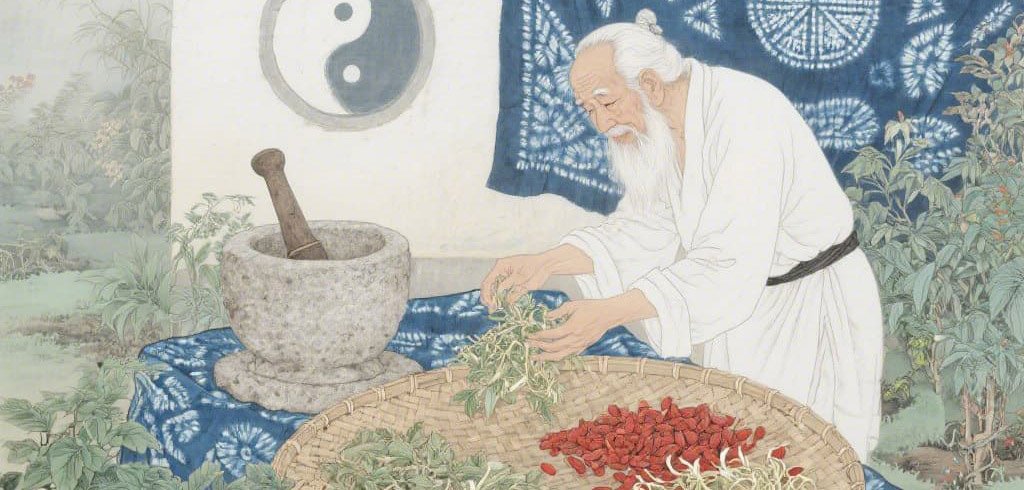
Qiuna Aluo (Persistent Postpartum Lochia) Overview In Miao medicine, continuous postpartum lochia is called Qiuna Aluo. It arises when a woman’s constitution is weak and cold pathogens invade, causing lochia to continue unabated or trickle slowly. In TCM, persistent lochia (chanhou elu buzhi or elu bujin) describes weak mothers or those who encounter heat or…
Miao medicine-Alowu (Postpartum Insufficient Lactation)
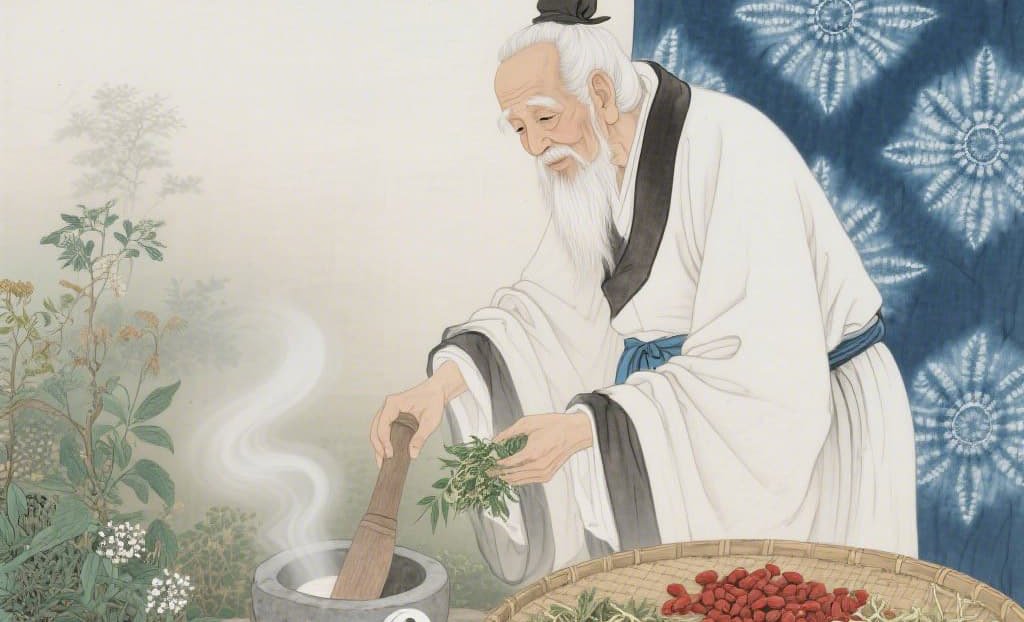
Alowu (Postpartum Insufficient Lactation) Overview In Miao medicine, postpartum lack of milk is called Alowu (or Mai Alowo). This condition arises when the mother’s constitution is weak and qi-blood deficient—whether due to illness before delivery, excessive exertion, emotional distress, or poor diet—so that after giving birth she produces little or no breast milk. Miao practitioners…
Miao medicine-Baidai Xini (Miscarriage)
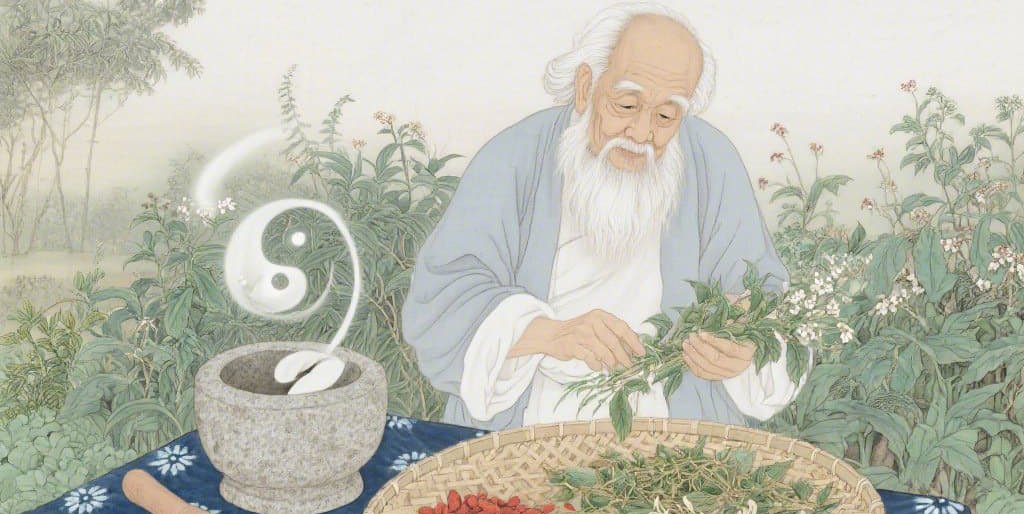
Baidai Xini (Miscarriage) OverviewIn Miao medicine, miscarriage is known as Baidai Xini. Baidai Xini is often caused by congenital deficiencies, physical weakness, excessive sexual activity, or contaminated food. The pathogenic mechanism mainly involves insufficient congenital kidney qi or damage caused by irregular sexual activities, leading to impairment of the Chong and Ren meridians, resulting in…
Miao medicine-Baziwo (Pregnancy Vomiting)
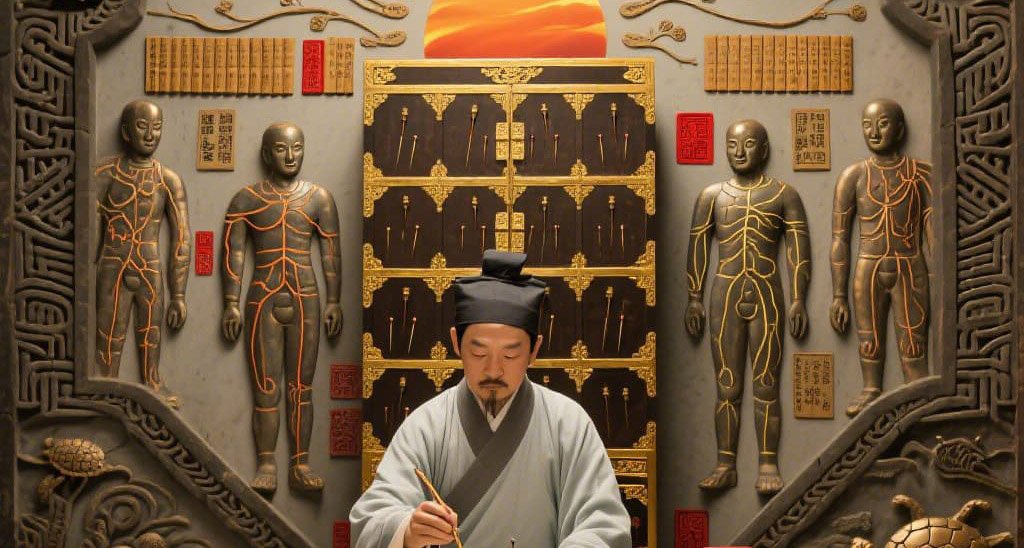
Baziwo (Pregnancy Vomiting) 【Overview】In Miao medicine, pregnancy vomiting is called Baziwo, also known as Baodai’outu. Baziwo is caused by women’s constitutional weakness, gastrointestinal dysfunction, and poor circulation of qi and blood during pregnancy. The pathogenic mechanism involves disharmony of the spleen and stomach, impaired transformation and transportation of food and water, obstructed flow of qi…
Miao medicine-Padaimongqu (Pregnancy-Related Abdominal Pain)
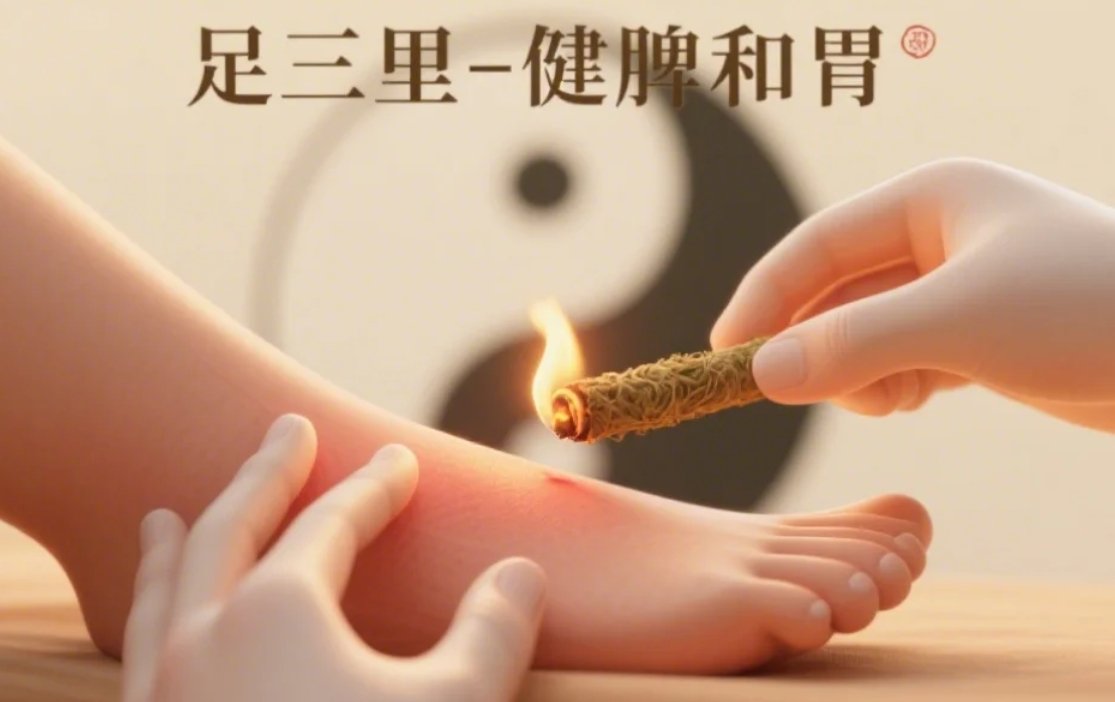
Padaimongqu (Pregnancy-Related Abdominal Pain) In Miao medicine, pregnancy-related abdominal pain is referred to as Padaimongqu, also known as Padaidongmengbai. Padaimongqu arises when a pregnant woman’s body becomes weak, leading to a deficiency of both qi and blood, causing poor blood circulation. Over time, this results in qi stagnation and blood stasis. During pregnancy, the consumption…
Miao medicine-Duo Yang Fa Jiu Yi (Women’s Vulvar Itching)

Duo Yang Fa Jiu Yi (Women’s Vulvar Itching) OverviewIn Miao medicine, vulvar itching in women is called Duo Yang Fa Jiu Yi. It most often arises from living in damp conditions or neglecting personal hygiene. Pathogenic factors include insect toxins, dampness, heat toxins, and constitutional weakness due to aging. Pathogenesis: the kidneys govern the two…
Miao medicine-Gao Ou Ye Meng (Women’s Lower Abdominal Pain)
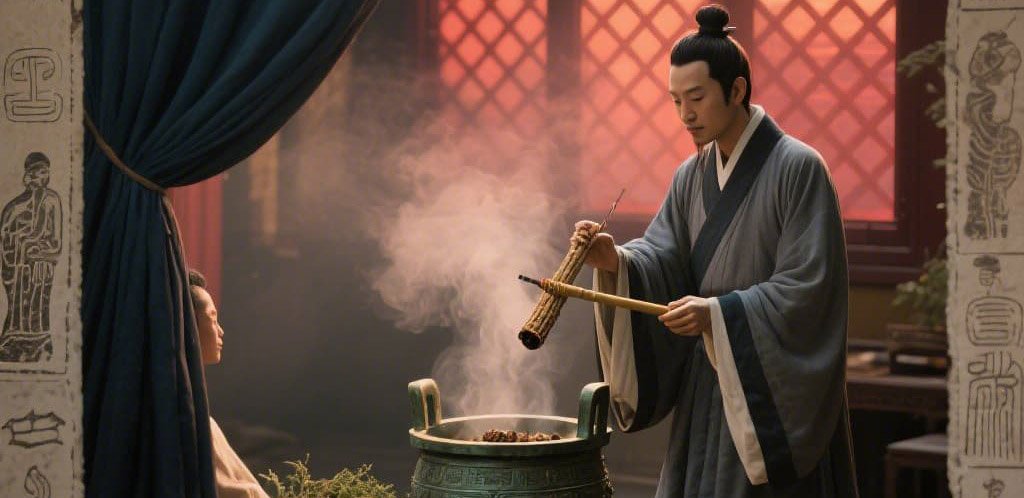
Ou Shu Nao Luo (Excessive Vaginal Discharge) OverviewIn Miao medicine, excessive leukorrhea is called Ou Shu Nao Luo, also known as Luo Ou Shu. It is triggered by heat-toxins, damp-toxins, unregulated sexual activity, overwork, or constitutional weakness. Pathogenic dampness invades the uterus, injuring the Ren and Dai vessels, leading to unrestrained discharge. Clinically it presents…
Miao medicine-Gao Ou Ye Meng (Women’s Abdominal Pain)
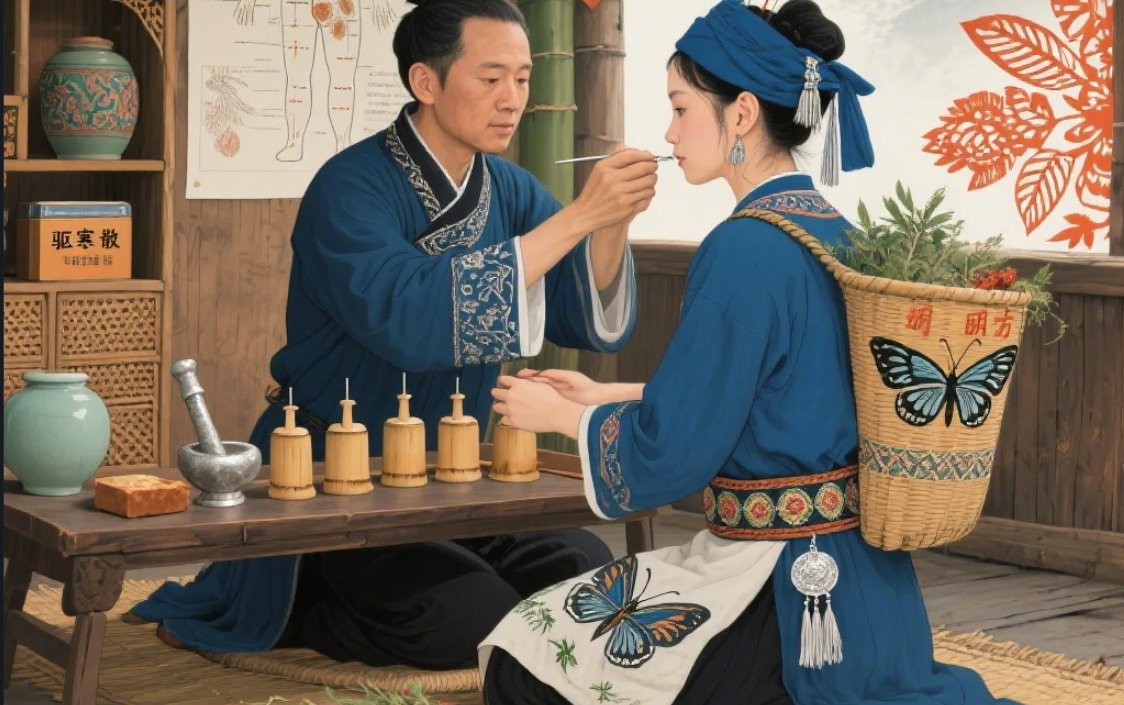
Gao Ou Ye Meng (Women’s Abdominal Pain) OverviewIn Miao medicine, women’s lower abdominal pain is called Gao Ou Ye Meng. It arises when personal hygiene is neglected during menstruation or postpartum care is inadequate. Pathogenic factors include wind, cold, dampness, heat, and toxins invading the body, which damage qi, fluids, and blood, leading to qi…
Miao medicine-Xiangfa Dai Cheng (Amenorrhea)
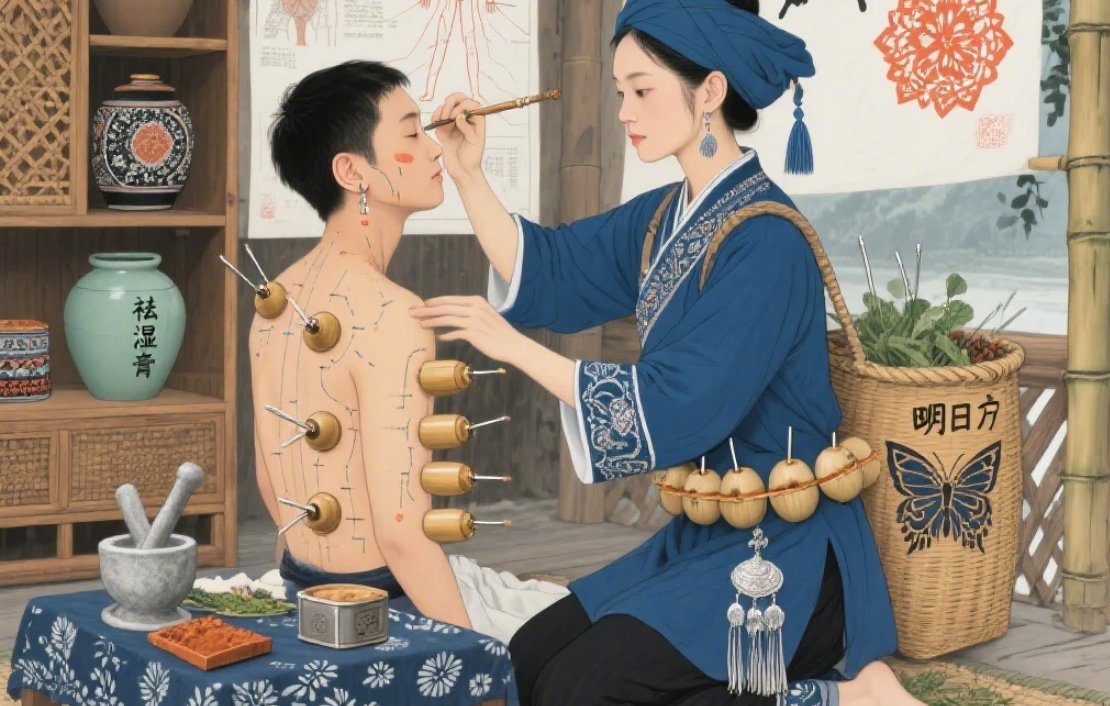
Xiangfa Dai Cheng (Amenorrhea) OverviewIn Miao medicine, amenorrhea is called Xiangfa Dai Cheng, describing a woman whose menstruation suddenly stops for three months after having been established. It is also known as Xiangfa He Yang Dai Luo, analogous to the concept of amenorrhea in Traditional Chinese Medicine (TCM). In TCM, amenorrhea refers to females over…
Miao medicine-Xiangfa Luomengqu (Dysmenorrhea)
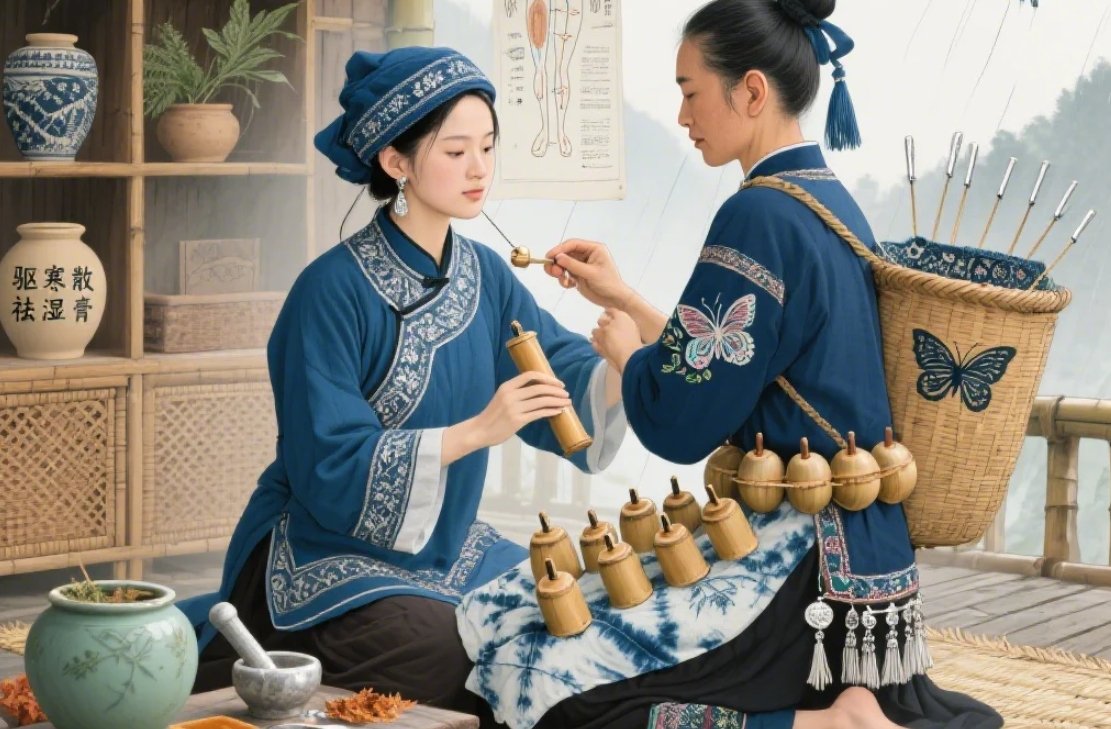
Xiangfa Luomengqu (Dysmenorrhea) OverviewIn Miao medicine, menstrual abdominal pain is referred to as Xiangfa Luomengqu. It is often caused by a deficiency of qi and blood, or poor personal hygiene. Women may experience lower abdominal pain during or around the time of menstruation, often radiating to the lower back. In severe cases, the pain may…


